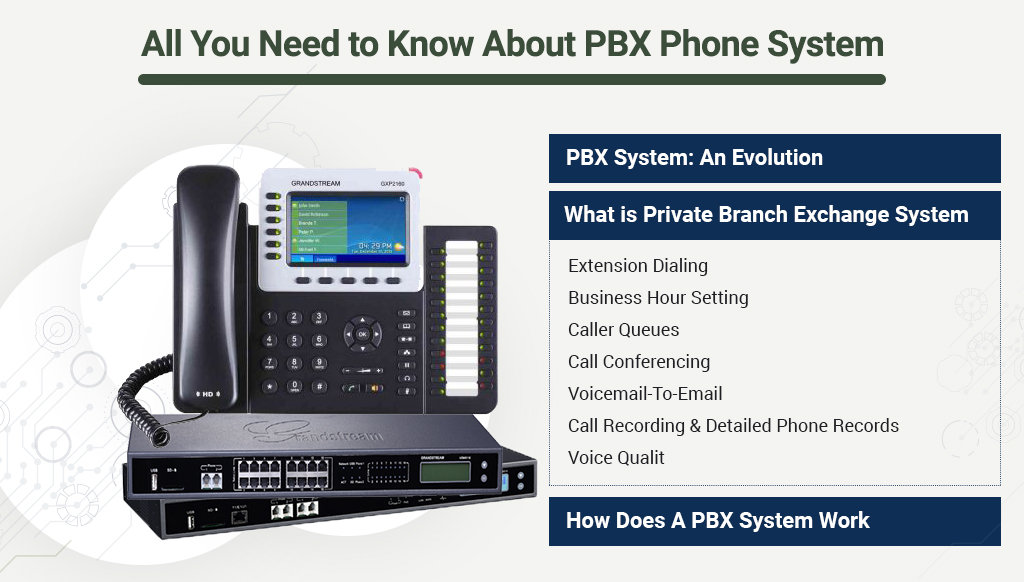All You Need to Know About PBX Phone System

Communication is a bedrock of any organization that helps in bridging the gap between different departments and broadcasting information to align them within one single objective. Over the years, information technology has made great evolvements that gave rise to several communicational requirements. Such growing and multidimensional needs have promoted telephone system manufacturers to introduce communication systems that boast convenience and efficiency. Whether it is working on the internet or external telecommunications, businesses need potent communication infrastructure that can simply expedite their tasks.
PBX System: An Evolution
With a view to meet the multifaceted communication needs of organizations, telephone system manufacturers have blended IP protocol with the conventional telephonic networks to provide a complete communication solution that is efficient and convenient more than ever. To avail the multidimensional features like minimal call costs, better IT infrastructure, optimal employee productivity and reduced overheads, organizations are switching towards PBX phone system(Private Branch Exchange).
What is Private Branch Exchange System?
A private telephone network that establishes a connection within the internal communication channel, a PBX phone system also integrates public telecom networks via different interfaces. It assists in switching calls on local lines allowing users to share external communication lines within a single network. Features offered by this revolutionary telephone system include:-
Extension Dialing: Allows the organization to use a single telephone number and further assigning unique extensions to each department or employees. This feature makes it easier to reach the intended personnel without waiting for in long telephony network queue.
Business Hour Setting: Routes off-hours (after business hours) calls to respective phone numbers of executive according to the pre-set codes to support 24/7 customer care line.
Caller Queues: Intimated the caller for how long they would have to wait until the operator comes online, thereby, improving customer care services of the organizations.
Call Conferencing: Allows users to make national and international conference calls without any network glitches that further streamline corporate relationships.
Voicemail-To-Email: Automatically diverts all the incoming voicemails to tentative executive’s email address with a view to establishing uniformity across multiple platforms.
Call Recording and Detailed Phone Records: Easily track records and analyze phone calls. Additionally, it is popular for its call recording feature that assists in gathering relevant material for future planning.
Voice Quality: Unlike the traditional phone system whose functionality was hampered by power failures, the calling quality of Ip based PBX is internet dependent, thereby, higher bandwidth ensure rich voice quality and enhance calling experience.
How Does A PBX System Work?
Over the past few years, the PBX phone systems were dependant on complex analogue cables that would require constant maintenance by telephone operators. With the inclusion of VoIP technology, PBX system uses internet protocol to transmit information in digital signals to the end receiver. VoIP technology has made it possible to access the multidimensional features of PBX phone system. When the IP based PBX system converts incoming calls to digital signals, the system starts channelizing those signals to its requested destination, thereby acquiring platform-neutral solution for converting and routing calls.
A digital PBX phone system contains a CPU card or server working as memory storage and managing call switching within the network. It also has a console PC to monitor and ensure its functionality. Along with these devices, there are a series of extensions that integrates various connections, such as, POTS (plain old Telephone Service), ISDN, DECT (Digital Enhanced Cordless Telecommunication), etc.
The disparate features and undisturbed communication infrastructure is something that makes the PBX phone system a prominent choice among other alternatives for business communications. Being an internet protocol based telephone system, a PBX system is less capital intensive offering maximized optimality and complete productivity within the prepared budget.
